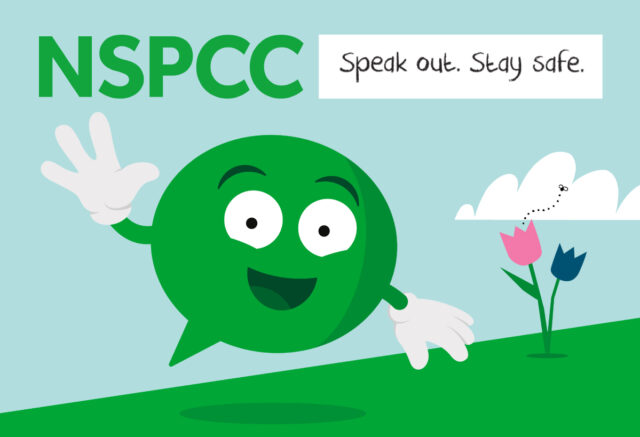Contacts to the NSPCC helpline about children living in homes with domestic abuse have increased by a monthly average of 49% since national lockdown measures were first introduced.
Latest data shows that in the five months from April there were more than 4,500 concerns raised by members of the public, with 818 contacts in August alone.
In the East of England, the NSPCC Helpline made 300 referrals on this issue to agencies including police and local authorities during this timeframe.
This is echoed by the experiences of NSPCC frontline teams and child protection agencies that have adopted the charity’s Domestic Abuse Recovering Together (DART) service to work with mothers and children that have suffered domestic abuse at home.
The helpline figures highlight how the risk of domestic abuse intensified after measures were put in place to tackle Coronavirus and that concerns raised to the NSPCC are still up compared with pre-lockdown levels
One member of the public who called the helpline for advice about their neighbour, said: “I used to only hear them late at night or first thing in the morning before I left for work – now I’m working from home, I realise it’s happening throughout the day. I sometimes hear the toddler crying as the parents are fighting. It pains me to think the child is having to live like this – can you help?”
Over the summer, the NSPCC and other charities successfully campaigned for the Government to amend the Domestic Abuse Bill and recognise the damaging impact domestic abuse can have on children.
However, there is currently no legal requirement to provide specialist support services, which are crucial in helping children recover from domestic abuse and move forward with their lives.
Ian, from Chelmsford in Essex, suffered domestic abuse at the hands of his father as a child, he said: “My mum and I were physically and emotionally abused by my father, it started when I was six and back then there wasn’t Childline or awareness raising groups like there are today.
“I watched my mum mentally deteriorate over those years as I became a teenager, she had become a shell of herself suffering through all the abuse. Even if my father hadn’t turned his hand on me, I would still have suffered greatly from the abuse he put my mum through.
“Domestic abuse should be taught as part of compulsory education in schools as being able to spot the signs from an early age will aid in stepping over the complete confusion that falls on children when they witness and suffer through such things. Self-blame is commonplace, anger fuelled by fear is inevitable and we would be guarding these children from growing up to feel the very things I felt or even worse.
An evaluation of the NSPCC’s DART service, which has supported thousands of people, underlines the importance of community-based support.
With the bill expected to have its Second Reading in the House of Lords next month, the charity is calling for an amendment that will place a statutory duty on local agencies to provide community-based services for children experiencing domestic abuse.
Emily Hilton, Senior Policy and Public Affairs Officer at the NSPCC, said: ‘‘By amending the statutory definition in the Domestic Abuse Bill, the Government has taken the important step of recognising the profound and long-term impact domestic abuse can have on children.
“They should underpin this by creating a statutory duty on local agencies to provide specialist community-based services for children impacted by domestic abuse. This must be backed up by funding for local agencies.
“The pandemic has shone a spotlight on children who are living with the daily nightmare of domestic abuse. Now more than ever it is crucial the Government grasps the landmark opportunity offered by the Domestic Abuse Bill to ensure children get the protection and support they need.”
One such community-based service is DART which supports mothers and children to help each move forward through the impact of domestic abuse.
Over the last decade the NSPCC has supported more than 2,000 women and children across the UK with its DART services and around 600 have also been helped by other organisations who have been licensed to deliver the service.
Given the increased need for services like DART to help families deal with the effects of abuse during lockdown the NSPCC are looking to accelerate upscaling the service and asking other organisations to get in touch if they can help deliver it.
Tilly* and one of her sons were referred to DART after sustained domestic abuse by her husband culminated in an attack that left her with a broken nose and cuts to her wrists.
She said: “I didn’t see myself as a domestic abuse victim, but I agreed to attend the two-hour sessions, once a week for ten weeks.
“In week one I didn’t have much to say, but when we got to week five the DART group looked at the controlling and isolating side of domestic abuse, and it hit me that my life had been terrible for years and I was a victim on domestic abuse.
“I realised that there had been a breakdown of communication between my son and I. DART really has helped me and my son a lot. The NSPCC saved me and saved my relationship with my son.”
An evaluation of DART found that it helps to:
• Increase mothers’ self-esteem and confidence in parenting and affection towards their children
• Reduce children’s emotional and behavioural difficulties
• Help practitioners, mothers and children work together
Recent analysis shows that families attending the DART programme with organisations the NSPCC have trained to deliver it can achieve the same positive outcomes as families attending the service when delivered by the NSPCC.
Organisations that are interested in delivering DART can get in touch with Claire Burns by emailing [email protected]




